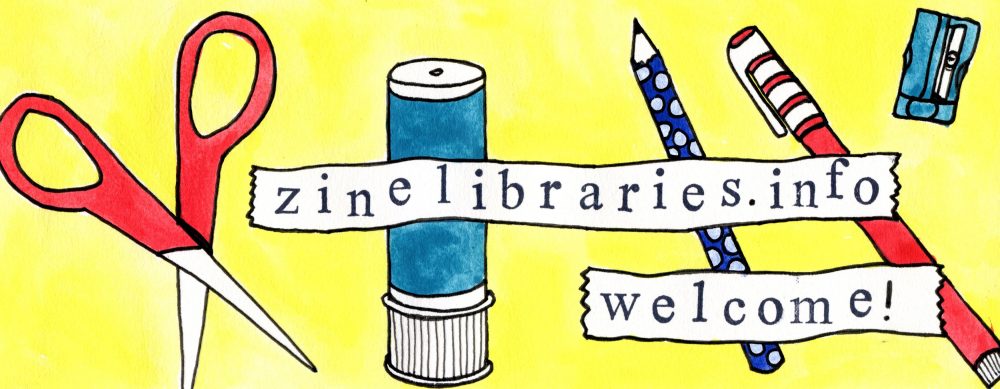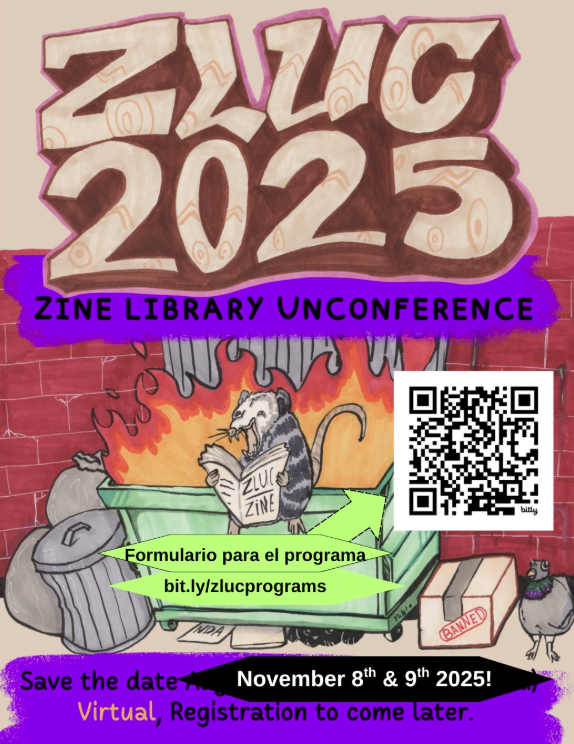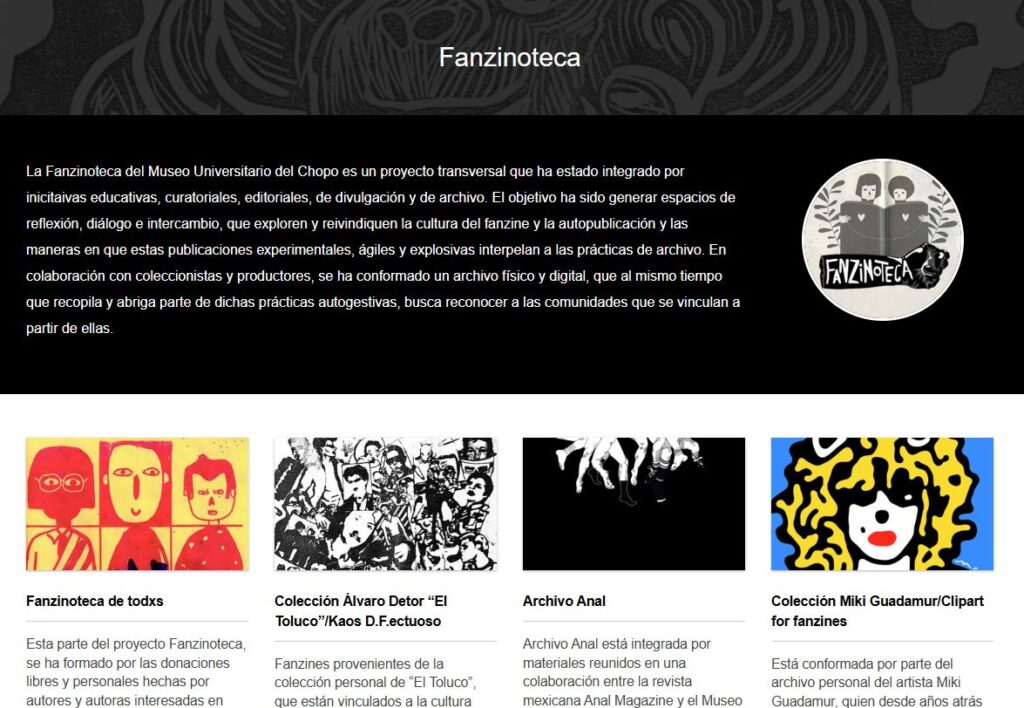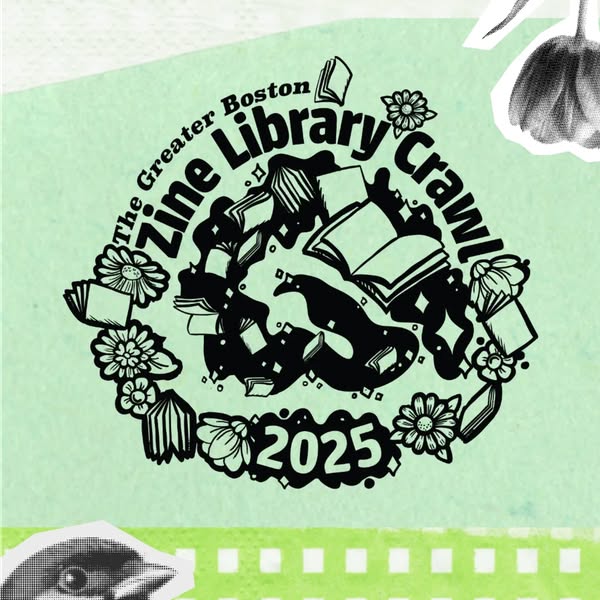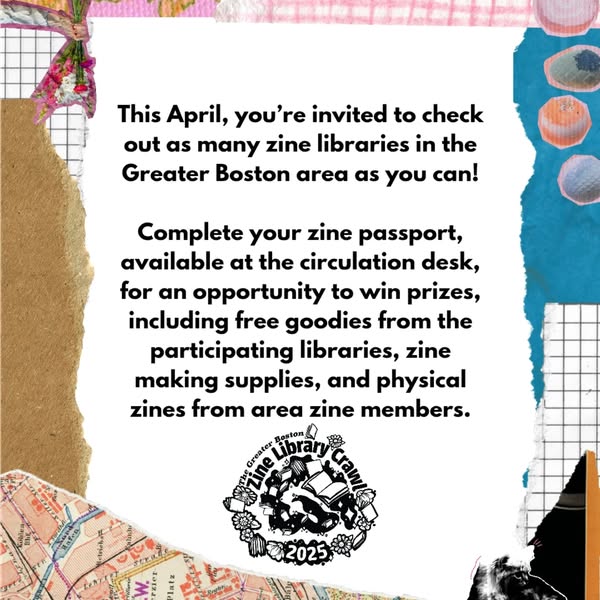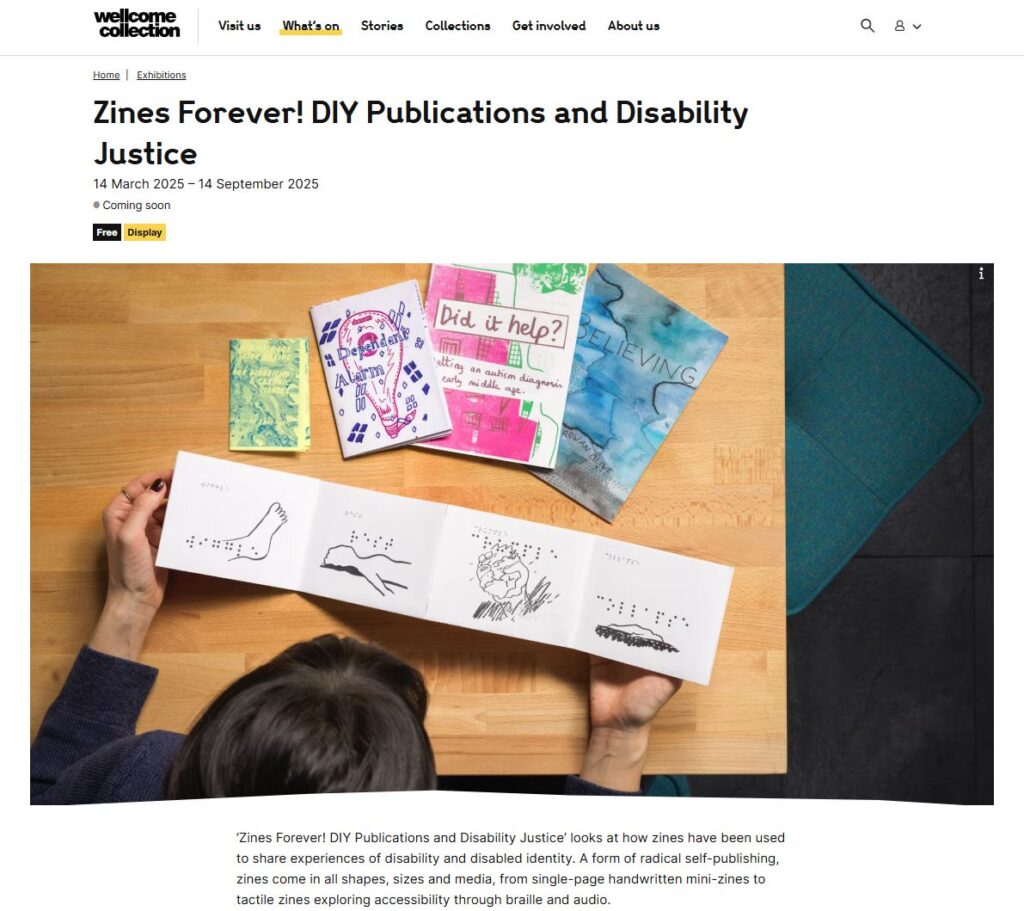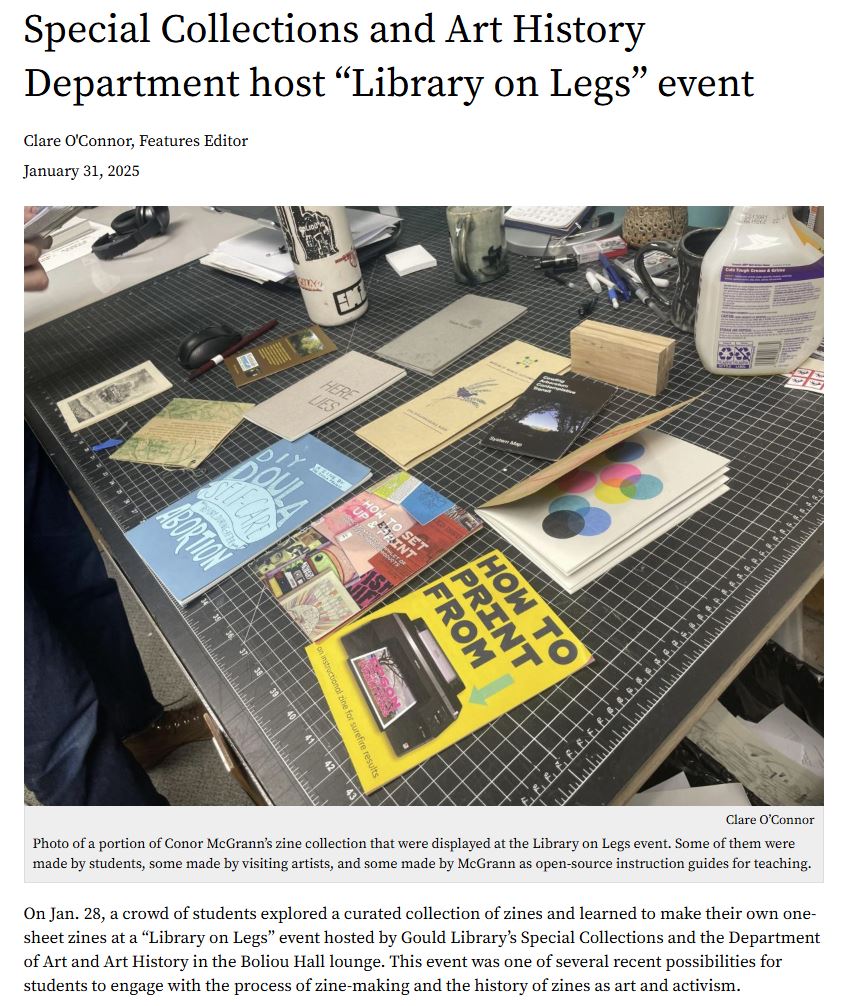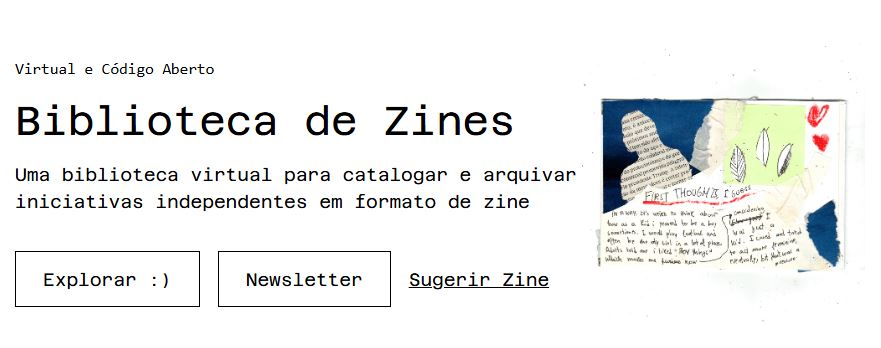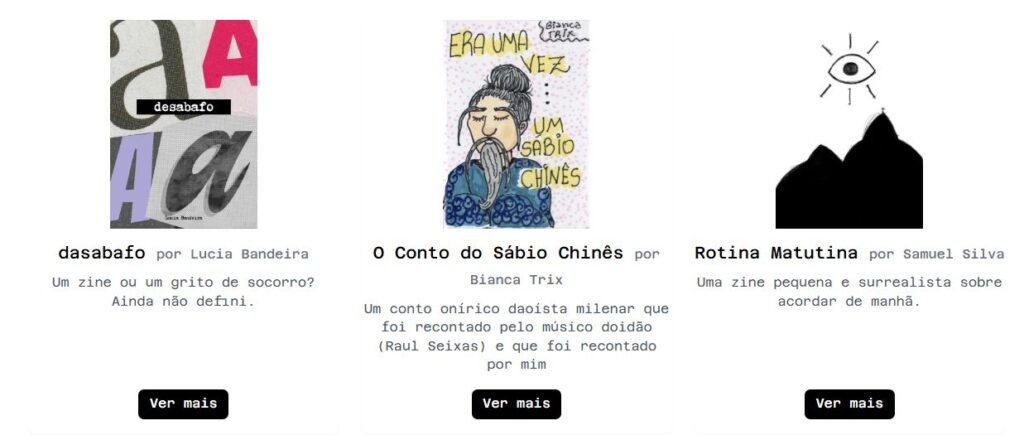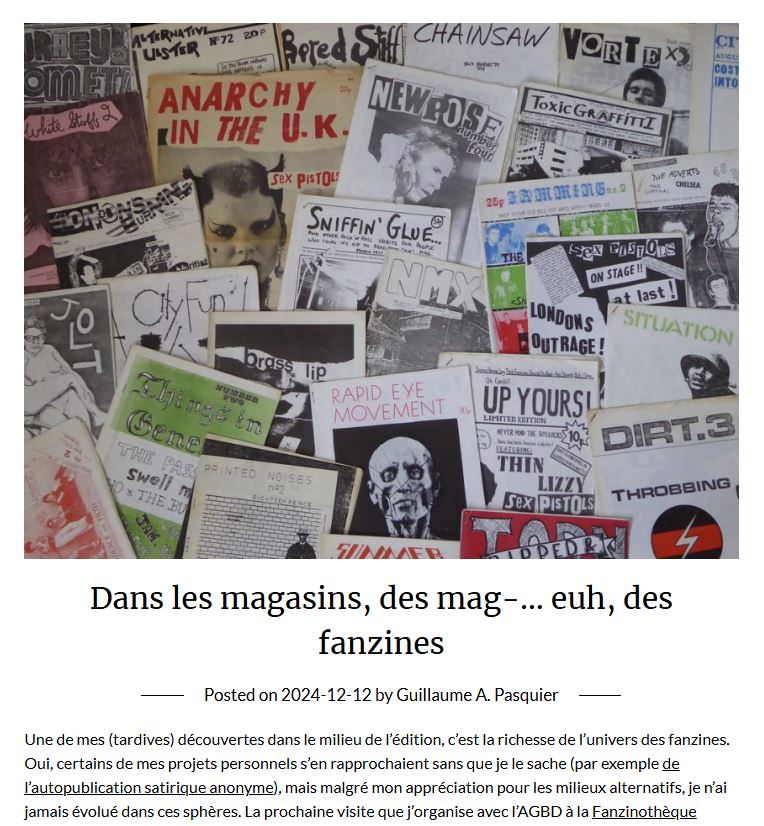Excited to stumble upon the website Tiny Zine Swap Shop, which is designed to help library workers introduce zinemaking to young people. Created by Scottish library worker Fi Johnston, the Tiny Zine Swap Shop has resources focused on the joy of making one-page zines, including a template, workshop, brief histories of zines, inspiration ideas, ideas for curriculum, and more.
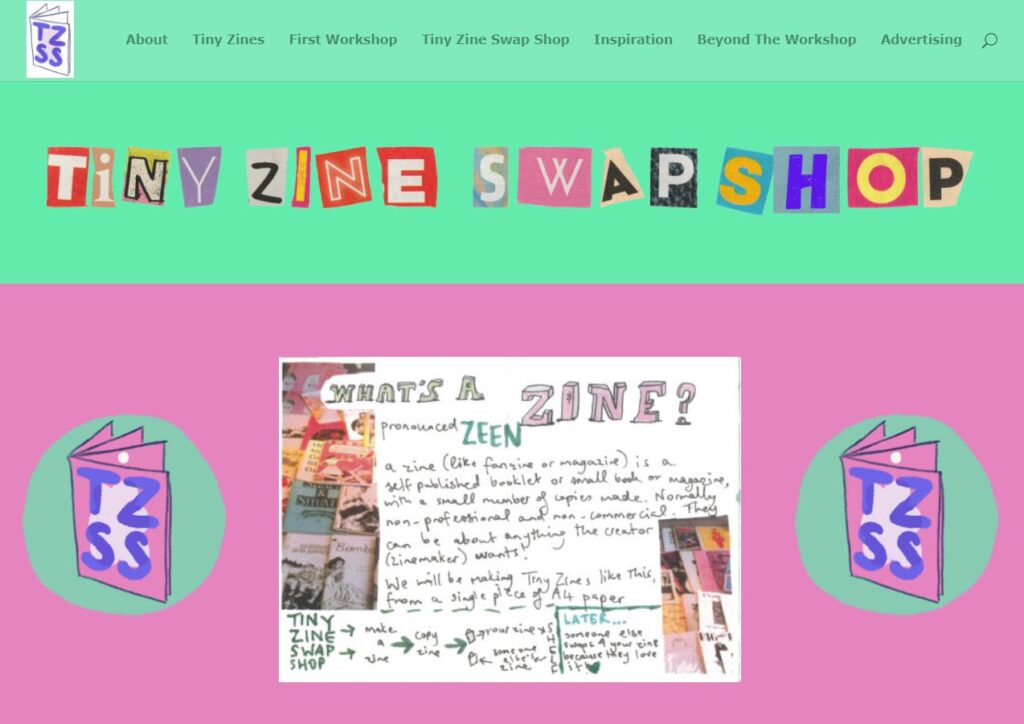
See Fi give a presentation about the site at Tiny Zine Swap Shop titled “The Benefits of Zinemaking on Young People’s Mental Health and Wellbeing.” That presentation was part of a June 2024 “Zine Webinar Morning” sponsored by the Academic and Research Libraries Group Scotland, which includes presentations such as:
- Penny Robertson discussed City of Glasgow College Library’s successful bid for funding with the Europe Challenge for their project where library staff and co-created zines with students.
- Bridget McCall outlined the ongoing project at the University of Dundee to create a collaborative guide to small-press and zine creation and discovery.
- Zines in academic spaces: the Glasgow School of Art Library: Assistant Librarians Charlotte Dunn and Jenna Meek discussed the importance of zines within academic spaces – not only as outputs but as authentic sources that can be used to diversify academic research.
- Zines Subject Headings project at the GSA Library, using the Homosaurus and the Zine Subject Thesaurus.
The video is a great way to see what’s happening in the Scottish zine librarian scene!
